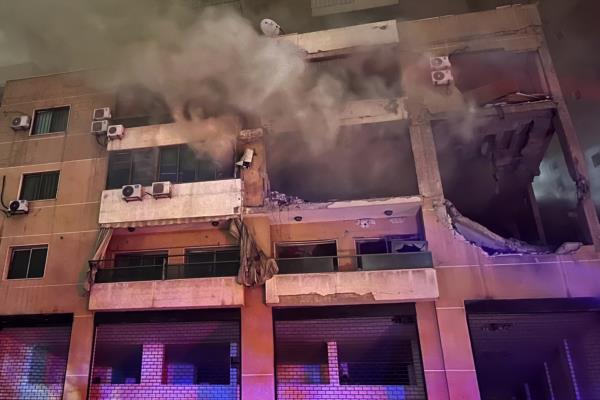
In a surprising turn of events, a recent strike in the suburbs of Beirut has claimed the life of one of Hamas' top officials, as well as several other members of the organization. The senior leader, Saleh al-Aruri, who has been designated a terrorist by the US since 2015, was considered one of the founders of Hamas' military wing. Israel, though not officially taking responsibility, has been revealed as the culprit behind the attack.
The strike took place in the Dahiya quarter of Beirut, a stronghold of the Shiite organization Hezbollah. This area is also home to other members of the so-called Axis of Resistance, such as Jabal Muqama, the Palestinian Islamic Jihad, and Iran. Al-Aruri had relocated to Beirut, fearing an assassination attempt from Israel. Hamas leaders believed that as long as they held Israeli hostages, they would be safe from Israeli attacks. However, this recent strike proves their assumption to be mistaken.
While Israel has not accepted responsibility for the attack, US officials have confirmed Israel's involvement to The New York Times. It appears that great care was taken to ensure the strike did not result in any civilian or Hezbollah casualties, signaling that the target was Hamas and not a broader confrontation with Hezbollah. This calculated approach may also be aimed at exerting pressure on countries like the US and France, which have been mediating between Israel and Hezbollah. By extending their reach to Beirut, Israel aims to remind these nations of the potential escalation if a political solution is not reached.



Al-Aruri's role within Hamas was significant. As the deputy political leader and military commander of the West Bank, he held crucial responsibilities. He was the point of contact between Hamas, Hezbollah, and Iran, orchestrating military operations and coordinating the financing and supply of weapons to Hamas. His absence will undoubtedly impact the ongoing hostage negotiations, as Hamas has already declared a severing of negotiations in response to his assassination. However, it remains to be seen how this development will ultimately affect the negotiations in the long run.
Both sides, though currently at odds, may eventually find it in their best interest to reach a final agreement on the issue of hostages. While Hamas has expressed its outrage and halted negotiations for now, the underlying goal for both Hamas and Israel is a resolution that can bring an end to the Israeli occupation and halt further invasions of Gaza. If there is a genuine desire from Hamas, it is likely that Israel will respond in kind, as both parties stand to benefit from a comprehensive resolution.







